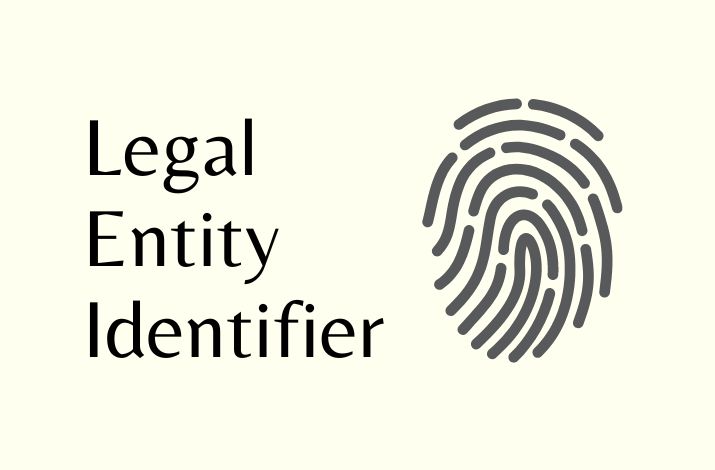LEI Compliance: Avoiding Common Pitfalls and Penalties

In the complex global financial ecosystem, the LEI has emerged as a barometer of transparency, risk management, and due diligence. However, the labyrinth of LEI compliance is daunting for most businesses. Failure to adhere to LEI regulations risks financial penalties and can tarnish a company’s reputation. This blog post takes all essential yet important facets of LEI compliance, includes common red flags, and suggests things you need to do to fall victim to penalties, and your dealings with the LEI should be nothing less than smooth and beneficial.
Understanding LEI Compliance
It is a 20-character alphanumeric code that allows for the completion of international and worldwide financial transactions, uniquely identifying all the legal entities participating. So, an LEI Register can boost transparency in the global financial systems, making it easy and reducing time for businesses while allowing regulators to carry out a good risk-based assessment.
The Importance of LEI Compliance
Keeping the Legal Entity Identifier (LEI) regulation is important for group work and accountability in legal everything as it ensures that every financial activity is tracked, further enabling the same. Such tracing is a fundamental mechanism through which regulatory bodies can ensure that financial risk is managed effectively and detect and punish financial fraud, thus maintaining the fairness of financial markets. By requiring LEI compliance, authorities can ensure that all entities engaging in financial activities are identifiable, contributing to greater accountability and confidence in the financial system. Such oversight plays a pivotal role in safeguarding against illicit activities and promoting stability, ultimately fostering trust and reliability in the global financial landscape.

Common LEI Compliance Pitfalls
Navigating LEI compliance can be challenging, particularly for entities new to the process. Here are some common pitfalls:
Procrastination in Registration or Renewal
The most common errors are with late registration or renewal of an LEI. LEIs are valid for a year from the date of issuance, requiring renewal to be effected annually. This would leave an LEI in a state where it expires and is thus termed “lapsed,” meaning the entity is out of line in meeting the regulatory requirement.
Inaccurate or Outdated Information
At the time of registration or renewal, misleading information or even information that may be correct but poorly updated may be submitted, indicating the existence of compliance risks. So, the most important thing is that the submitted data should be correct and updated, reflecting the real situation of the legal entity.
Overlooking Jurisdictional Requirements
Different jurisdictions require requirements for LEI, and many entities do not always ask or understand all the requirements of that jurisdiction. Inadvertently, they prevent themselves from becoming non-compliant, which eventually attracts penalties.
Strategies to Ensure Compliance
Avoiding the pitfalls of LEI compliance is not insurmountable. Entities can take a proactive approach to ensure compliance and avoid penalties.
Plan for Registration and Renewal
Businesses should not wait until the last minute to register or renew their LEI. Establishing a timeline that accounts for the processing times can help ensure that your entity remains compliant. Setting up reminders or using an LEI service provider that offers renewal reminders can be beneficial.
Ensure Data Accuracy and Completeness
Accuracy is paramount in the registration process. Verify and confirm all details before submitting the form. Subsequently, for ongoing compliance, promptly update any changes to the entity’s name, address, or ownership structure. Regular updates ensure alignment with regulatory requirements, minimizing the risk of non-compliance. Organizations uphold transparency and integrity by maintaining accurate information, fostering trust in financial transactions and regulatory adherence.
Read Also: Effective Business Management Techniques for Success
Understand and Adhere to Local Regulations
Being aware of the regulatory framework concerning the LEI in your region is fundamentally important. This in-depth understanding of the legal framework ensures that your company manage with local compliance requirements, thus minimizing the chance of fines being levied. Companies monitor compliance gaps through due diligence and regulatory compliance processes and ensure conformity to the requirements of a specific law or guideline by keeping abreast of regulations and relevant practices. It prevents institutional fines while being a sign of impeccable honesty for the organisation’s financial transactions. Overall, entering deeply into regulatory jurisdiction, entities will show their firms’ compliance and trust and bolster their stakeholders’ trust. This will consequently strengthen operational resilience and reputation.
Utilize Reputable LEI Service Providers
Collaborating with a trusted LEI issuer or service provider streamlines the compliance journey significantly. These partners offer invaluable support by guiding you through initial registration, facilitating annual renewal procedures, and managing any required updates to your LEI Register. By leveraging their expertise and resources, businesses can easily navigate the complexities of LEI compliance, saving time and resources. Moreover, relying on reputable providers ensures accuracy and reliability in maintaining compliance over time, giving organizations peace of mind and confidence in meeting regulatory requirements seamlessly.
Foster a Culture of Compliance
Maintaining a compliance culture in your organization primarily prevents LEI non-compliance risk. This involves training staff on the importance of LEI adherence as well as designing internal protocols to manage such tasks effectively. Institutions can breed a culture of responsibility and knowledge about compliance obligations by emphasising training initiatives and raising employees’ awareness. Moreover, implementing a streamlined process for managing LEI so that the renewals, updates, and registrations are done on time and properly is paramount. Instilling a preventative compliance culture throughout the organization makes mistakes and the risks of being penalized for non-compliance less likely, so a bad reputation can be avoided.
Consequences of Non-Compliance
Non-compliance with LEI regulations may also result in a very serious outcome. Financial penalties can be very high, depending on jurisdictions and the controlling regulatory body. Apart from monetary fines, this would expose the organization to operational disruptions, including involvement in some financial transactions. The reputational damage that might accrue from non-compliance has very long-lasting effects on business relationships and market perception.
Conclusion
Compliance with LEI is a must in modern-day financial transactions. The compliance part is known beforehand, and the common pitfalls are known. If handled proactively, it prepares the business to crack down on the details of LEI regulations effectively. It helps manage financial and reputational risks related to noncompliance your organization may face and supports the broader objective of improving transparency and security in the global financial marketplace.






